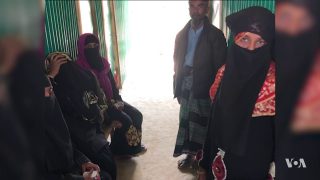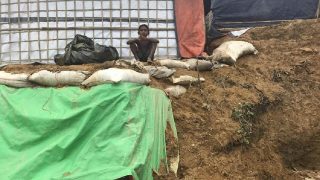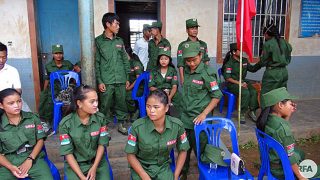Stressing that the legal process that led to the conviction of two Reuters journalists in Myanmar “clearly breached” international standards, the United Nations top human rights official called for their immediate and unconditional release.
In a statement on Monday, Michelle Bachelet, the UN High Commissioner for Human Rights, said that the convictions “send a message to all journalists in Myanmar that they cannot operate fearlessly, but must rather make a choice
to either self-censor or risk prosecution.”
Earlier in the day, Kyaw Soe Oo (also known as Moe Aung) and Thet Oo Maung (also known as Wa Lone) were sentenced to seven years’ imprisonment on charges of violating, according to the High Commissioner’s Office (OHCHR), the “ill-defined” Official Secrets Act.
In the statement, Ms. Bachelet also said that the two journalists’ coverage of the Inn Din massacre by the military – for which the military subsequently admitted responsibility – “was clearly in the public interest as it may otherwise never have come to light.”
“I call for their conviction to be quashed and for them to be released, along with all other journalists currently in detention for their legitimate exercise of the right to freedom of expression,” underscored the UN human rights chief.
Ms. Bachelet assumed her functions as the United Nations High Commissioner for Human Rights on 1 September. She succeeds Zeid Ra’ad Al Hussein, who held the position since September 2014.
Journalists’ sentencing ‘a dark moment for Myanmar’ – UN rights experts
Also on Monday, UN independent human rights experts on the right to freedom of expression and on the rights situation in Myanmar denounced Mr. Oo and Mr. Maung’s convictions, calling it “a dark moment for Myanmar.”
“This is yet another clear signal of Myanmar’s distancing from international human rights law,” said David Kaye, the UN Special Rapporteur on the right to freedom of opinion and expression; and Yanghee Lee, the UN Special Rapporteur on the human rights situation in the country, in a news release issued by OHCHR.
“We regret that the court failed to recognise the importance of independent journalism, freedom of expression and the public’s right to know.”
The experts also said that they have previously expressed their grave concerns, and urged greater press freedom after the journalists’ detention.
“We urge the President to pardon the journalists, and if the case is appealed, for the court to take into account Myanmar’s human rights obligations and order their release,” they said.
UN Special Rapporteurs and independent experts are appointed by the Geneva-based Human Rights Council to examine and report back on a specific human rights theme or a country situation. The positions are honorary and the experts are not UN staff, nor are they paid for their work.
Source:UN



